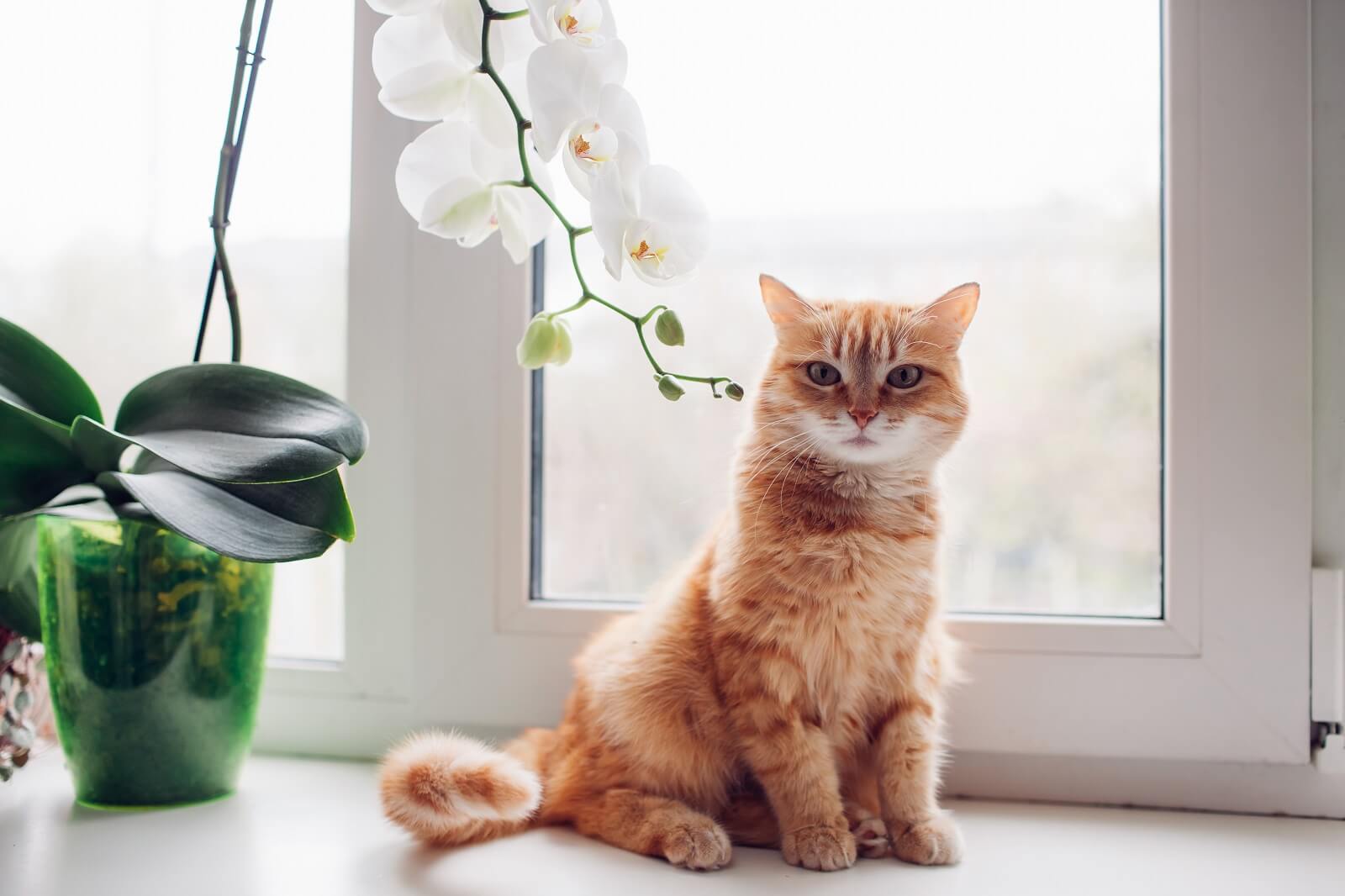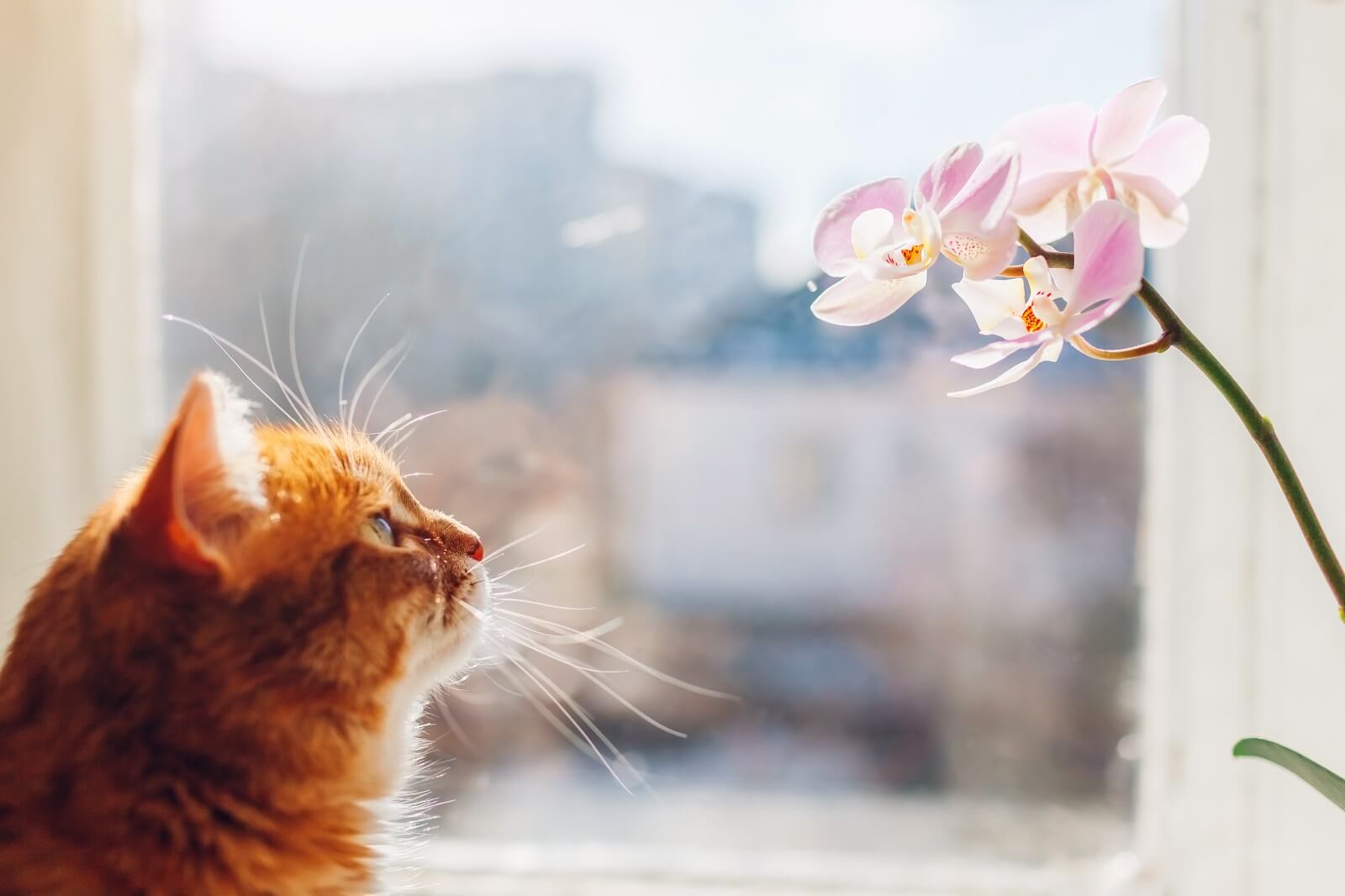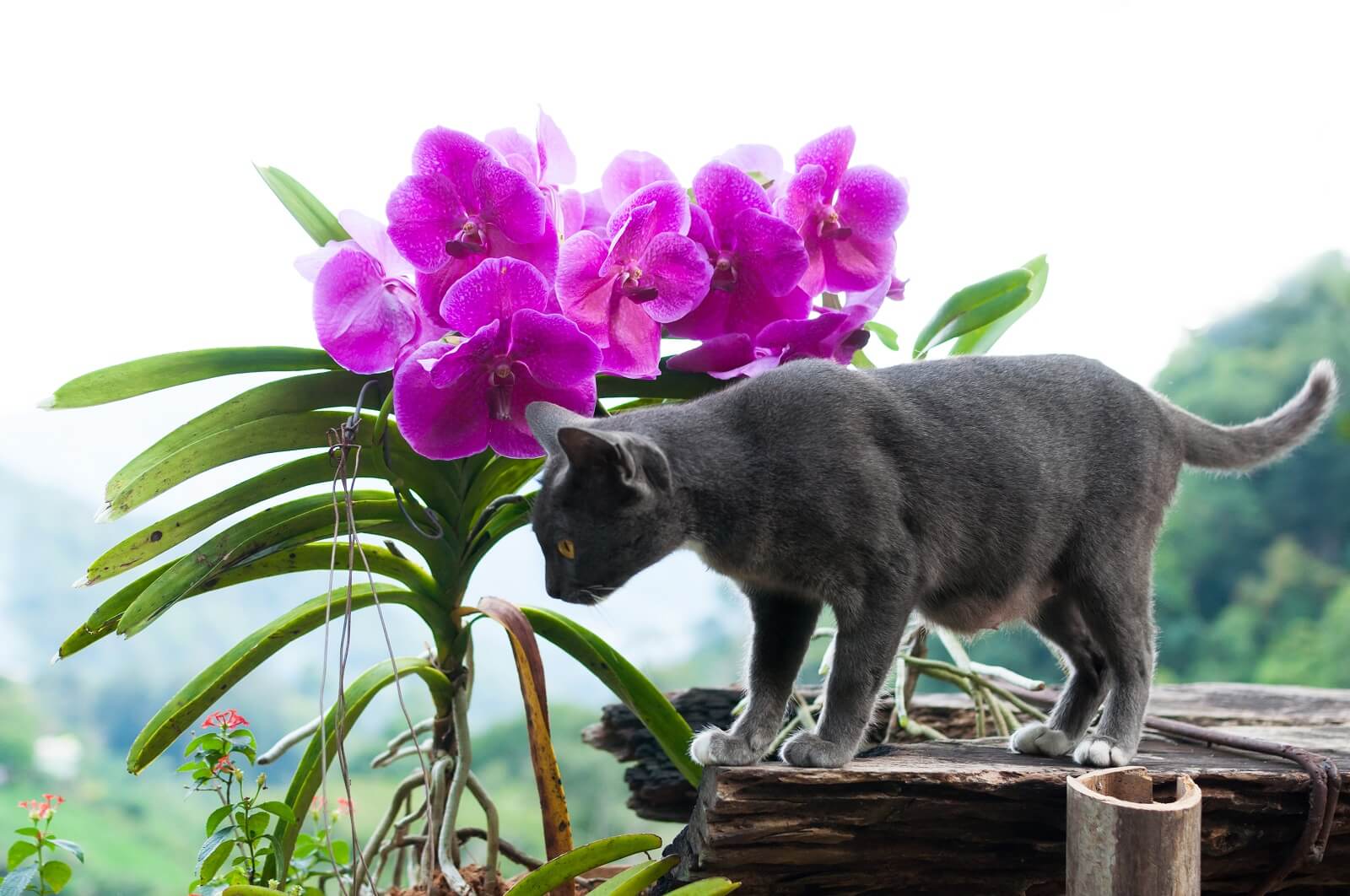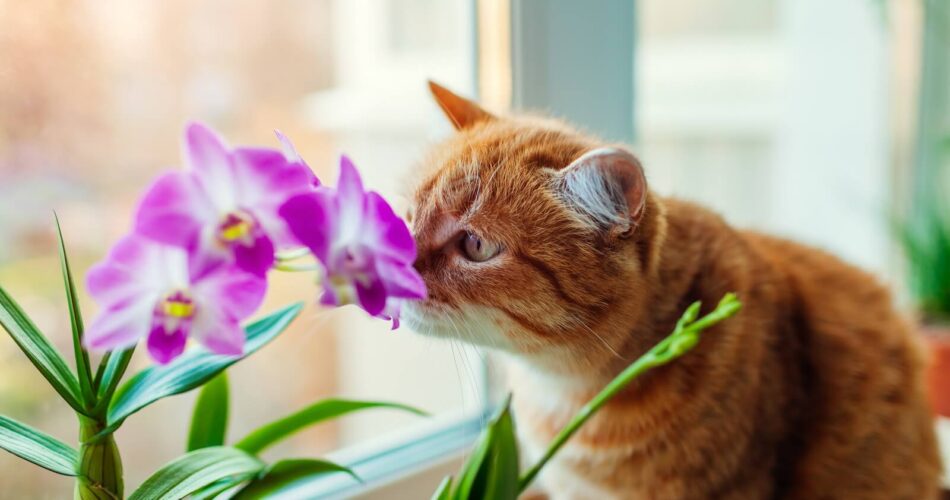Orchid lovers often live with fear or worry if they can have both their beautiful flowers in their homes, as well as their feline friends running around. The question ‘Are orchids poisonous to cats?’ is often a recurring one, and so there’s often the struggle to prevent their cats from eating or choking on plants and flowers.
While it is a general belief that orchids are toxic to cats and kittens, it is not entirely true. Stick with us, and you will learn if orchids are toxic for your cats or kittens, and how to deal with having both in your home.
Why do People Believe Orchards are Poisonous For Cats?
With the reputation of several plant species having some chemical traits that can be harmful to people and other animals, it makes sense for people to question if orchids are toxic for cats. In simple terms, orchids are not toxic or poisonous to cats and kittens. While this is true, other flowers are quite harmful to felines.
Most people consider orchids harmful to cats because when cats eat flowers, they might experience periods of stomach discomfort, which could be so serious that veterinary care will be needed. However, according to the American Society for the Prevention and Cruelty of Animals (ASPCA), orchids have been discovered to be non-toxic to cats.
While this is good news for cat and orchid lovers, it is still important to be aware that it doesn’t mean all kinds of flowers are safe for cats. Some can still cause serious health problems (or even death) for your cats, so it is advised you know which kind of plant is safe or unsafe for your felines.
Plants Toxic to Cats
Are cymbidium orchids toxic to cats? Is any kind of orchid poisonous for cats? Like we said earlier, orchids aren’t poisonous to cats, and it is often a better option if they don’t munch on flowers or plants because of digestive issues. However, other plants are actually toxic and are best avoided.
Which plant should be avoided? There’s a complete list of poisonous plants cats should avoid on the ASPCA webpage, and you can check it out to be sure you have a safe space for both plant and animal. However, we will list a couple of popular plants that are toxic to cats:
- Ago Palms
- Amaryllis
- Autumn crocus
- Azalea
- Caladium
- Calla lily
- Cape jasmine
- Carnation
- Chrysanthemum
- Cyclamen
- Daffodil
- Daisy
- Daylilies
- Devil’s ivy
- Dieffenbachia
- Easter lily
- English ivy
- Foxglove
- Hosta
- Wandering Jew
- Lily of the valley
- Marijuana
- Mum
- Narcissus
- Peace lily
- Pothos
- Rhododendron
- Spanish thyme
- Stargazer lily
- Tulip
- Yew

If your cat has eaten a poisonous plant or flower, it is advised that you head straight to a vet for a blood test that will check to see if their nimble bodies and delicate organs are being affected by toxic chemicals contained in the plant or flower.
Depending on what your kitty may have ingested, you may have to watch for signs of poisoning or take your cat to the clinic as soon as possible.
Plants Non-toxic to Cats
If you’re considering having beautiful flowers around your home and you’re curious as to which plant is safe, you should read this. The ASPCA has recognized more than 15 plants that are not poisonous to cats so that they won’t be a threat to your felines. Some of these plants are:
- African Violet
- Areca Palm
- Baby Tears
- Bamboo Vine
- Boston Fern
- Calathea (Zebra plants or Peacock plants)
- Christmas Cactus
- Freckle Face (Polka Dot Plant)
- Gloxinia
- Moth Orchid
- Orchids
- Royal Velvet Plant
- Spider Plant
- Staghorn Fern
- Venus Fly Trap
There is also a longer list of these plants available on the ASPCA webpage.

Keeping Your Orchid Away From Cats
Even though you can have your cats and orchids in the same space, there are still other reasons why you may want to keep them away from each other. Like we mentioned earlier, cats like to chew on flowers. Their curiosity can also cause them to push flowers down or destroy them in other ways.
Your flowers can’t add their fragrance, beauty, or character to your home if cats continue to eat or destroy them. Luckily, there are a couple of ways to prevent this:
● Change Plant Location
If you have a dedicated space like a room for your plants, you can deliberately keep the door closed to keep your cats out. This may require constant attention, and may also cause guests to miss out when they come into your home, but it is necessary if you want healthy plants and healthy kitties.
Alternatively, you can use wall-mounted vases or hang planters by windows to place plants and flowers away from your cats’ reach.
● Cat Repellents
If you are having a problem keeping your cat away from your plants, you could consider repellants. A simple spray of vinegar and water, or dusting your plants’ leaves with cinnamon or cayenne pepper, could serve as an excellent repellent for cats. However, be sure to check that the mix is safe for your plants and flowers before you use them.
A more sophisticated method is a motion-activated pet repellent. This may be a more expensive option, but they’re highly effective. They make a loud hissing sound when your cats come around areas you don’t want them to be in. If none of these are what you’re comfortable with, then you may consider creating a safe play and living space for your cat.

Conclusion
While orchids won’t poison your cats or kittens, their instinctive curiosity may cause them to chew on leaves and flowers, which can damage your plant collection or cause stomach problems. The best way for your cats and plants to coexist is by maintaining a certain level of caution and care for both parties.
You can move your plants away from your cat’s reach, use repellants, or even offer your cat essentials, toys, and a safe place to be a cat without destroying your home. Your plants will have more opportunities to flourish, and you will be able to enjoy the company of your cats!
Do you have any other questions or comments? Don’t be shy to contact us.

